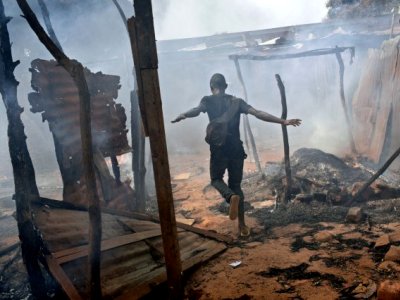
KICKING THE DARKNESS UNTIL IT BLEEDS LIGHT
The world is becoming a more dangerous place for many who believe in Christ. What can be done about it?
The emergence of several countries from tyranny and fear some 28 years ago with the collapse of east European communism has given the misleading impression that things have become easier for the global Church. In the last few years the worldwide indices of freedom of speech and worship have taken a knock and it has become harder in some places to believe in Christ.
These are some of the places where it has been documented that Christians have faced persecution recently:
Afghanistan, Algeria, Angola, Azerbaijan, Bangladesh, Burma, China, Egypt, Eritrea, Ethiopia, Israel and the Palestinian territories, India, Indonesia, Iran, Iraq, Jordon, Kazakhstan, Kyrgyzstan, Laos, Malawi, Maldives, Morocco, Nigeria, North Korea, Pakistan, Russia, Saudi Arabia, Somalia, Sri Lanka, Sudan, Syria, Tajikistan, Tanzania, Tunisia, Turkey, Turkmenistan, Uzbekistan, Vietnam and the Yemen.
This is over one in five of the countries of the world.
Why are we so dimly aware of this suffering?
There are now 130 countries in the world where Reuters and Associated Press do not have a TV bureau and as most global news is dependent on these wire agencies there is a vast swathe of the world which is not getting reported at all (see ‘The Empty Echo of the Daily News’ under FAITH IN CULTURE).
The most noticeable developments in the persecution of the Christian Church are happening in Muslim countries. As well as old communist suspects like China and North Korea, there are several countries that figure highly as western tourist destinations: Morocco, Tunisia, the Maldives and Turkey among them. This highlights the need for ethical commitment as holidaymakers – that with the privilege of foreign travel comes responsible awareness of indigenous communities.
It is a challenge to enter into the intercessory needs of persecuted Christians when you live in a bubble of privilege. Lying with my head against a pillow and a cup of tea at my side, it was an unwelcome shock recently to be reminded of the words of Hebrews: remember…those who are being tortured, as though you yourself were being tortured (13:3). It is probably a blessing for the Church in later generations that the early Christians were persecuted as it offers a model for how this might be handled. The Apostle Paul said in 1 Corinthians: if one part of the body suffers, every part suffers with it and he called on believers to remember my chains (Colossians 4:18)and not to turn away from his suffering out of shame, embarrassment or threat to reputation.
There are some people who do the serious job of an intercessor in this world by identifying themselves with the needy through physical privations like sleep loss, hunger, thirst or cold as they pray. Those of us who have never come near such commitment should not allow guilt over this to fester because it is the most self-indulgent and inhibiting of vices when not confessed. I do not believe God intends us to feel guilty about the privileges we enjoy. I think he wants to use the strength we have been gifted with to support others, particularly through prayer.
The Barnabas Fund (www.barnabasfund.org) provides an excellent daily prayer guide to the persecuted Church, affording access to stories gained by personal links between churches which are moving, heartbreaking and inspiring by turn. I know how hard it is to visualise people and places and to empathise with experiences so different to ours as we pray but we should not be deterred. The musician Bruce Cockburn once used an arresting phrase. As fellow Christians get kicked around in nameless cells this day, I can think of no better description of the process of intercession than to ‘kick the darkness until it bleeds light’.
POPULAR ARTICLES

Obama's Covert Wars
The use of drones is going to change warfare out of all recognition in the next decades.

Through A Glass Starkly
Images of traumatic incidents caught on mobile phone can be put to remarkable effect.

What Are British Values?
Is there a British identity and if so, what has shaped the values and institutions that form it?


